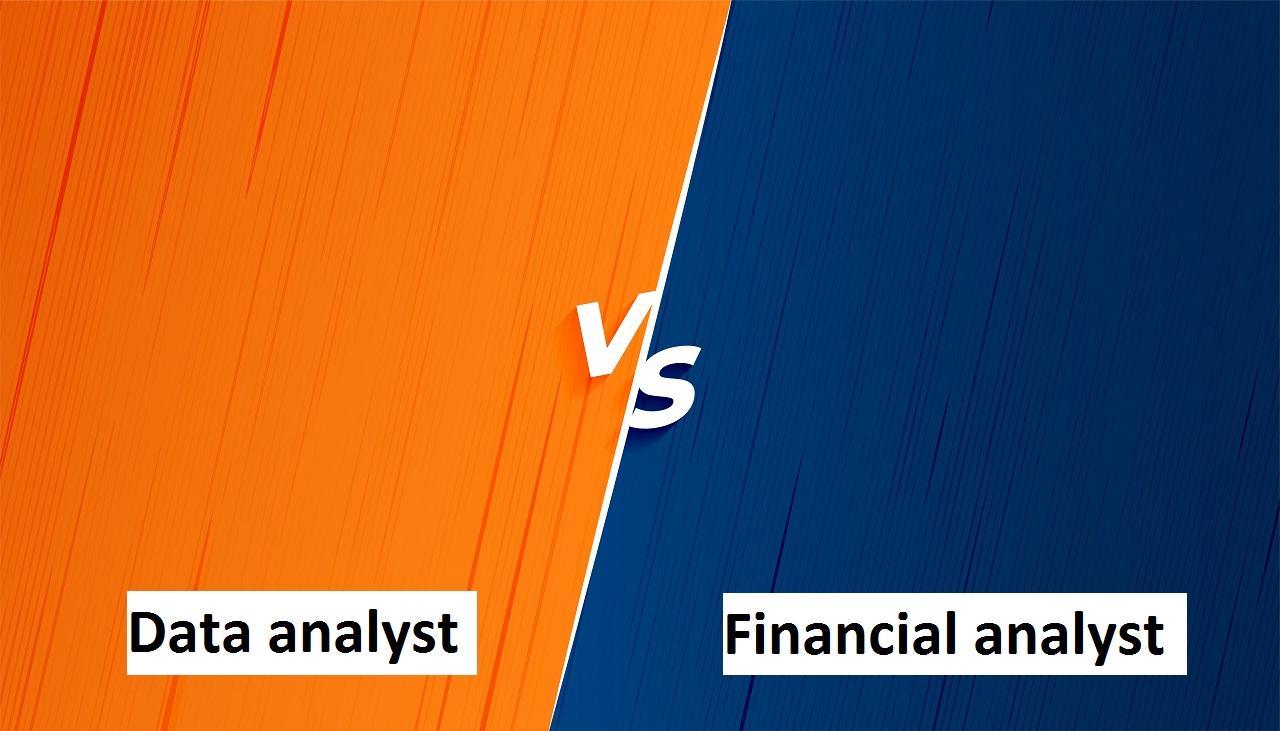There are many similarities between data analysts vs. financial analysts. Understanding the distinctions between the two professions will help you choose the profession that’s best for you.
You can choose which of these two roles is ideal for you by knowing how they vary from one another. To assist you in deciding which position best matches you, we’ll compare data analysts and financial analysts in detail.
Let’s scroll down to read more information!
Who Is A Data Analyst?

Data analysts collect, organize, and analyze to get meaningful insights from the enormous amounts of information.
Today, businesses use data to help them decide which clients to target, what new markets to enter, or what social networking sites to pay attention to.
Data is constantly accessible, and experts use it to guide businesses in the proper directions. Their jobs are to gather information, identify trends, and develop inferences so companies can use them to guide important decisions.
One of the responsibilities is to interpret the significance of numerical variations when compared between months, years, or departments.
Utilizing knowledge gained from the information they examined, they might even counsel department leaders and project managers.
There are no industry-specific restrictions on data analytics. Each business that understands the value of data analysis can employ a database administrator to work there.
Predictions show that the need for qualified data scientists will grow further over the next several years.
Who Is A Financial Analyst?

Financial analysts gather and arrange an organization’s financial data. They examine this database to forecast the future and provide recommendations to the business.
Although they conduct a wide range of additional responsibilities, this is the typical occupation of a research analyst. These experts usually work for investment corporations, KPOs, independent businesses, and investment banks.
Simply speaking, an analyst examines financial data to assist businesses in making wiser financial decisions. They must create financial projections to forecast how specific corporate actions will turn out.
They ought to gather a lot of financial data and create a summary that forecasts the future while considering the present marketing trends.
Key Differences

Education Required
The easiest way for an aspirant data analyst to get started is with a certificate in statistics. Companies typically search for a research analyst with a full range of computer literacy.
While not strictly necessary, a bachelor’s degree is compulsory for this position. A master’s also significantly boosts your valuation in the employment market.
On the other hand, the economics, finance, and statistics majors are the most suitable for undergraduate majors for a financial analyst.
These skills are ideal when combined with the MBA system to increase chances, especially with a strong GPA and extensive job experience.
Skills Required
In general, financial analysts and data scientists need to be experts who are fully conversant with the methods for applying to reason.
They should also be proficient in quantitative research and have extensive knowledge of the diverse financial markets and investment products.
It is advantageous for data scientists to have current computer skills and a thorough comprehension of several standard programming systems.
Nevertheless, you will probably have a bonus with teamwork, strong leadership, and interpersonal abilities for each occupation.
Teams do a significant amount of data and financial research. Analysts are required to communicate their results to various organizational departments in a straightforward manner.
Earning
The average yearly salary for financial analysts was $81,410. This figure is different because of the size of the firms.
The number of financial experts can receive straight wages and bonuses, which also depend on the organization’s profitability.
Based on our research, the average yearly salary for data analysts was $83,750. You may find that there is no comparison between the salaries of a data analyst and a financial analyst.
Comparison Table
| Data Analyst | Financial Analyst | |
|---|---|---|
| Job Description | assembles, purifies, and analyzes data sets to provide insight into a subject or problem | analyzes financial data to assist businesses in making choices |
| Education | a bachelor’s degree | a bachelor’s degree a master’s in finance and business administration |
| Skill | Statistical programming Structured Query Language Probability and statistics Machine learning Statistical visualization Data management Econometrics | Accounting skills Communication skills Interpersonal skills Technical skills Problem-solving skills Financial literacy skills Leadership and management skills Critical-thinking skills |
| Salary | $83,750 | $81,410 |
Which One to Choose?
It can be essential to think about your professional ambitions when choosing the analytic specialty that is best for you.
Review the advice below to assist you in identifying your objectives and the profession that would best meet your interests:
- Consider your interests: While data analysts are more concerned with operational effectiveness, financial analysts assess financial information and accounting. You can choose your specialty simpler if you prefer programming or accounting principles.
- Examining the job descriptions: This action will help you picture each profession’s typical day. Evaluating the duties performed by each sort of analyst could also be crucial to finding the vocation that attracts you.
- Ask professional analysts questions: Speaking with them about the specialty will allow you to learn about each career. To discover the duties of a financial or data analyst, you can ask to work as opposed to one.
FAQs
Who earns more data analysts or financial analysts?
The average yearly income for data analysts in the United States is $82,360. Financial analysts make about $81,410 annually.
Although these wages are comparable, they might change depending on your region, degree of education, and experience.
What are the top 3 skills for a financial analyst?
- Excellent mathematical capabilities
- Mastery of logic
- Expert problem-solving skills
Are business analysts and data analysts the same?
Both data analysts and business analysts use data. What they do with it makes a difference. To make wise business judgments, business analysts utilize data.
Analysts acquire data, process it, extract helpful information, and distill their findings into easily understandable insights.
Is a financial analyst a data scientist?
Financial analysts may work on Wall Street and with investment banks. Meanwhile, data analysts can work in data centers and large IT corporations.
Financial analysts often have backgrounds in economics. Data analysts typically have backgrounds in computer science and statistics.
Can a data analyst become a financial analyst?
To work as a financial analyst, you must have a bachelor’s degree in finance, economics, or statistics. You may also employ senior financial analysts in the industry if they have an MBA specializing in finance.
Conclusion
There are numerous differences between data and financial analyst.
The finest investment choices are made by their companies and customers with the aid of financial analysts who utilize financial data to identify patterns and extrapolate into the future.
Similar tasks are carried out by data analysts, with the main difference being that they examine data that may or may not be related to finance.
Both data and financial analysts should anticipate a promising future and competitive pay. Both jobs provide fantastic exit prospects.
Your temperament, level of education, and professional objectives will often determine which of the two you should pursue. I wish you success with your choice!
